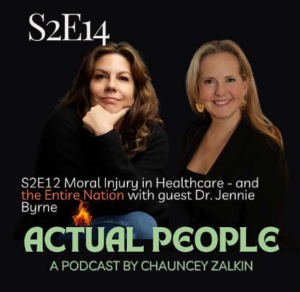No going back
On a recent podcast, I talked with the host, Terry McDougall, PCC, MBA, about the new ways of working. Terry said:
“There is no going back – we have to go forward to something new.”
Terry’s comment struck a chord. When I think back to my old ways of working, I can’t imagine going back.
- What would it be like to sit in traffic and commute every day?
- What would it be like to squeeze myself into Spanx and heels every day?
- What would it be like to pretend I was a robot who existed only to work?
As we start to explore new ways of working, the old ways of working seem outdated. We still have not figured it out, but most people agree the future of work is now and it looks different than pre-pandemic.
However, when it comes to PTO, vacation, and rest, we are still in the old groove. Old habits are even harder to break when it comes to unplugging from work.
There is plenty of evidence* from neuroscience research on the importance of rest for optimal brain function. But American work culture persists in ignorance. We ignore the evidence because our culture continues to promote endless work.
I am tempted to take a deep dive into neuroscience to persuade you that your brain and body need more rest that you are providing. But I know that you would say “hmm, that is interesting”, and it wouldn’t truly resonate. Instead, let’s take a look at the evidence from another American passion – sports.
Sports medicine has been quietly evolving at a rapid pace, perhaps more rapid than traditional medical research. Given that Americans love sports, tons of money is available to research sports and how to optimize human sport performance. Unlike other kinds of grant-funded research, privately-funded sports research is quiet. It is designed to help athletes gain a competitive edge, so it is not openly shared in the press.
Sports medicine is also being done quietly at universities. For example, I live in North Carolina, where college basketball is extraordinarily important. Within 15 minutes of my house, there are two sports medicine departments: one at UNC and a “K-Lab” Human Performance Lab at Duke.
All sports medicine scientists will tell you that rest is important. Athletes have strict rest regiments, both with their sleep schedules, and with their workout routines. More recently attention has been focused on athletes’ mental health. Now in addition to physiological rest, athletes are working on ways to rest and recharge their brains.
We should think of ourselves as athletes at work.
For some people, work is a marathon. It is long and steady, with few breaks, but then a big break at the end. If you were an athlete training for a marathon you would build up your endurance with structured work periods and structured breaks. Then you would run the big race, then you would have a long rest period.
What would the art of the unplugged vacation look like for the marathon worker? A series of progressively more difficult work weeks over a two month period with a big project requiring two weeks of nonstop work, then a prolonged rest period of two weeks to four weeks. This style of work and rest might be optimal for a design crew doing a time-limited project with a final deliverable.
For some people, work is a place of fast-paced change where agility and mental stamina are critical. I currently work with a healthcare start-up company, and find the that my mental sharpness and ability to change styles of work are important. This may be similar to a singles tennis player who needs to be technically excellent, but also mentally strong, and able to quickly adapt to the opponent.
What would the art of the unplugged vacation look like for a singles tennis player? A slow and steady routine of working Monday-Wednesday, then a day off to focus on mental health and strategy on Thursday, then back to practice Friday and Saturday, then another day off to focus on mental health and rest on Sunday.
For some people, work is a team activity. Community and trust are extraordinarily important to get the job done. Examples of this could be a firefighting unit, a military combat unit, or a dance troupe. We can learn from team-based sports in these workplaces.
What would the art of the unplugged vacation look like for a soccer team? A steady routine of team-based drills for part of the day, then individual targeted workouts the second part of the day. Lots of opportunities for social and team-building activities in the evening, weekend, and during travel games. Everyone on the team keeps an eye on each other and suggests extra rest and recovery when needed.
So, as my summer comes to an end, I still don’t have all the answers on how to master the art of the unplugged vacation.
As we get more comfortable with the idea that our ways of working are changing, I hope we can get more comfortable with the idea of resting and recharging. There is more discussion about mental health, which is a good thing. But I see people (myself included) still struggling with the idea that we need to unplug from work. It is hard to make this change, it is such an important part of our identity as Americans to be hard workers.
Making this conversation more complicated is the fact that there are many different kinds of work. And there are many different kinds of people. There is no one-size-fits all answer.
Perhaps using the sports metaphor and digging into sports medicine provides a comfortable framework for solving the problem. Take a look at your work, and ask what type of work athlete are you? Then you can start to think about work and rest in a new way. What would a similar athlete do?
Winning at work is like winning at sports. We are athletes, and we are human. Let’s break the old assumptions and go deeper. We all want to win, but winning means that athletes need to work smarter, not harder.
*if you want to read some of the neuroscience evidence, checkout this article on mental downtime, this article on how to rest your brain, and this article on the rhythm of rest







